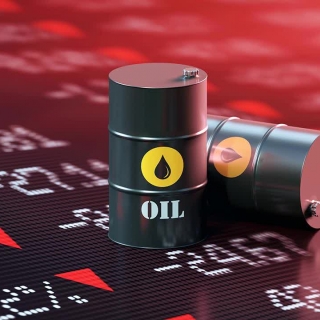


Oil prices fell on Monday as expectations that U.S. President-elect Donald Trump will ease restrictions on Russia's energy sector in return for a deal to end the Ukraine war offset concerns about supply disruptions from tougher sanctions.
Brent crude futures fell 28 cents, or 0.35%, to $80.51 a barrel by 0739 GMT after closing down 0.62% in the previous session.
The more active U.S. West Texas Intermediate crude for April delivery fell 21 cents to $77.18 a barrel. The front-month contract, which expires on Tuesday, was unchanged at $77.88 a barrel after closing down 1.02% on Friday.
Trump, who will be inaugurated on Monday, is widely expected to make a series of policy announcements in the first hours of his second term, including ending a moratorium on U.S. liquefied natural gas export licenses - part of a broader strategy to strengthen the economy.
"There is a certain amount of uncertainty across the market going into this week given President Trump's inauguration and the series of executive orders he is reportedly set to sign," ING analysts said in a note.
"This, combined with a US holiday today, means that some market participants may have decided to reduce risk."
Both contracts rose more than 1% last week in their fourth straight weekly gain after the Biden administration sanctioned more than 100 tankers and two Russian oil producers. That sent major buyers China and India scrambling to secure fast cargoes of oil and a rush to secure ship supplies as Russian and Iranian oil traders sought unsanctioned tankers to transport their cargoes.
While the new sanctions could impact supplies of almost 1 million barrels per day from Russia, the recent price surge could be short-lived depending on Trump's actions, ANZ analysts said in a client note.
Trump has pledged to help end the Russia-Ukraine war quickly, which could involve easing some restrictions to allow for a deal, they said.
Analyst Tim Evans said the new sanctions were seen as curbing supply, at least in the near term.
"Higher tanker rates on unencumbered vessels and a widening backwardation in crude calendar spreads have been among the most notable ripple effects, reinforcing supply concerns," he said in his Evans on Energy newsletter.
Backwardation refers to immediate prices that are higher than those in future months, indicating tight supplies. Brent's immediate monthly spread was unchanged at $1.22 a barrel on Monday. WTI's spread was at 59 cents a barrel, up 10 cents. Easing tensions in the Middle East have also kept oil prices low. Hamas and Israel exchanged hostages and prisoners on Sunday, marking the first day of a ceasefire after 15 months of war. Investors are now watching the impact of cold weather in Texas and New Mexico that could affect U.S. oil production, analysts at ANZ and ING said.
Source: Investing.coma
Oil prices were little changed in Asian trading on Thursday after US President Donald Trump backed down from a threat to impose tariffs on European countries over Greenland. This decision helped ease ...
Oil prices rose on Tuesday, supported by a combination of supply disruptions from Kazakhstan, improved global economic growth projections, and a weakening US dollar, making dollar-denominated oil chea...
Oil traded in a tight range on Thursday after two straight sessions of losses, as markets digested a sharper US push to shape Venezuela's crude flows—alongside fresh tanker seizures tied to sanctions....
Oil prices edged higher as the market digested the United States' latest moves regarding Venezuela. WTI held steady at US$56/barrel after a sharp drop, while Brent remained below US$60/barrel. This s...
Brent crude prices sank in volatile trading on Wednesday after U.S. President Donald Trump said Venezuela will supply tens of millions of barrels of oil to Washington. Oil prices were nursing losses ...
Gold prices briefly caused a stir after hitting a new record, but then slowed. The main trigger: US President Donald Trump withheld the threat of tariffs on Europe and claimed there was a "framework" for a future agreement on Greenland. This calmer...
Oil prices were little changed in Asian trading on Thursday after US President Donald Trump backed down from a threat to impose tariffs on European countries over Greenland. This decision helped ease geopolitical tensions and improve market...
The Nikkei 225 Index climbed 1.73% to close at 53,689, while the broader Topix Index rose 0.74% to 3,616 on Thursday, snapping a five-day losing streak as Japanese shares were lifted by a strong rally in chip and artificial intelligence related...